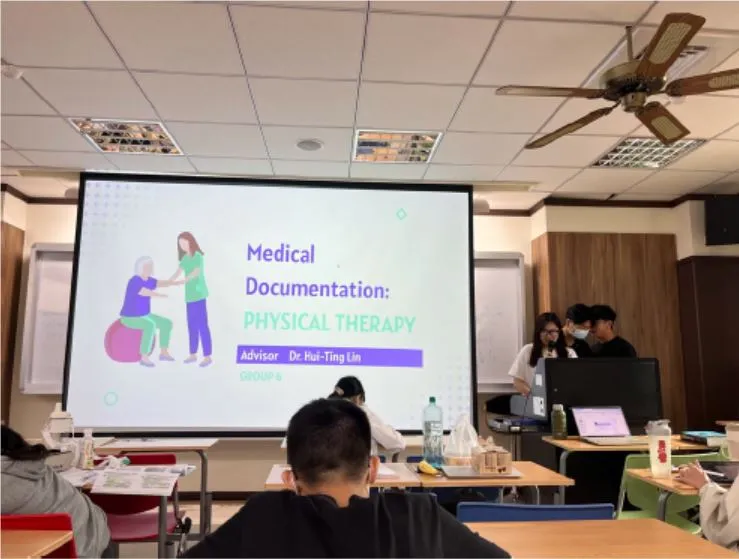To help students understand the scope of physical therapy and experience innovative, hands-on teaching methods early on, our department has integrated the "Introduction to Physical Therapy" freshman course with the "Rooted Learning Academy" program. Based on the CDIO educational framework—Conceive, Design, Implement, and Operate—this program introduces a Freshman Project aimed at inspiring students’ learning motivation and interests, teaching them how to learn, and fostering creativity and teamwork. It also provides insights into the future development of professional fields within the industry. The course consists of four key components: structured industry visits, outstanding alumni career development talks and practical industry speeches, and a Rooted Project proposal and presentation. These activities aim to train students in foundational practical skills, including observing societal needs, conceptualizing problems, and proposing solutions, while instilling a sense of mission to contribute to society.
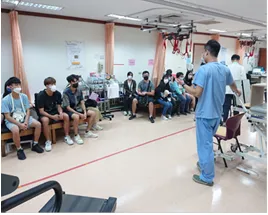
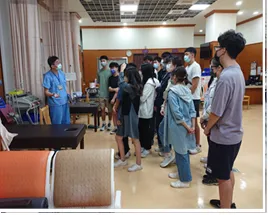
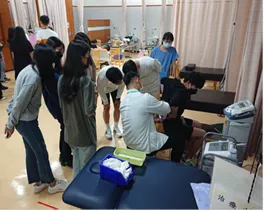
This course focuses on practical AI application skills, introducing how artificial intelligence can be utilized in physical therapy practice. It covers the application of intelligent computing technologies in sensing, virtual reality, and augmented reality, with applications in posture, gait, and movement assessment as well as therapeutic training. Through advancements in smart healthcare, the course aims to achieve the goal of precision physical therapy.
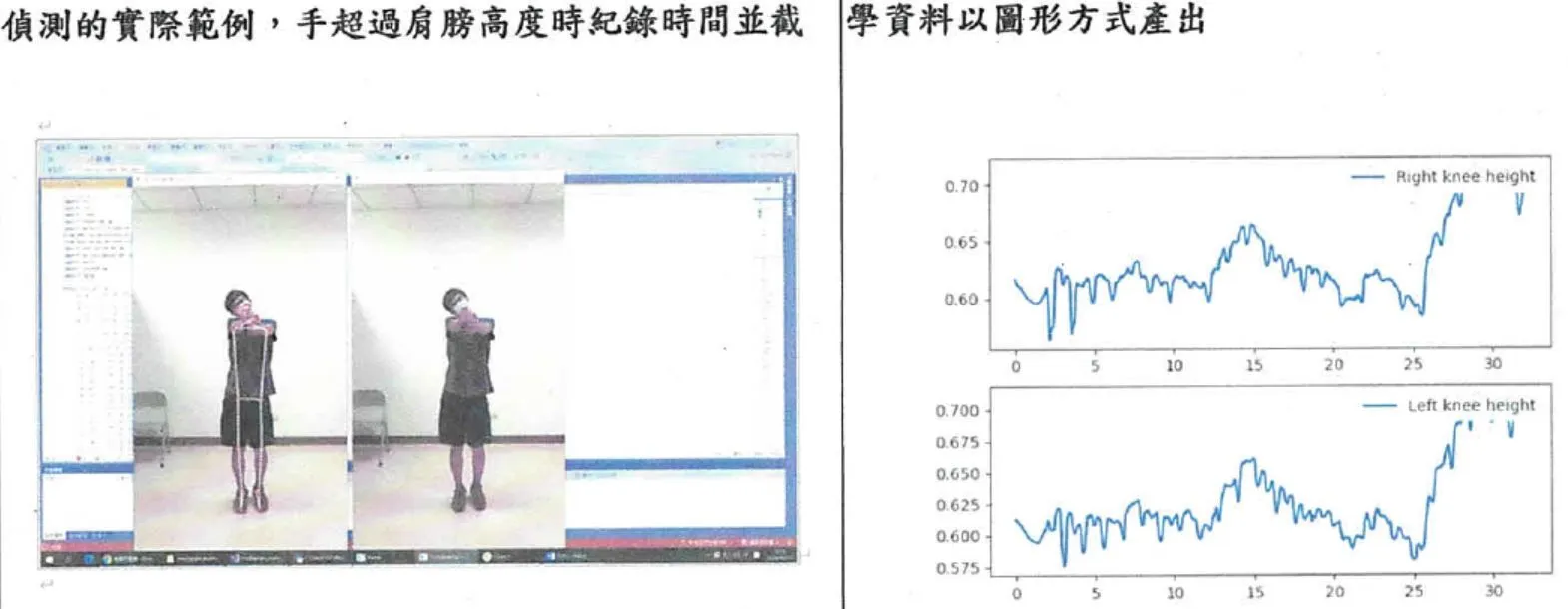
This course adopts a student-centered learning approach, breaking away from the
traditional lecture-based framework. Building on the existing curriculum, it
deepens and broadens learning content, integrates interdisciplinary knowledge,
and incorporates creativity and innovation. Through non-lecture methods such as
issue-based discussions, hands-on practice, case analysis, and practical
operations, the course strengthens the connection between theory and practice,
increases students' self-directed learning, and develops higher-level learning
and cognitive abilities.
The English Medical Charting Internship is offered in the second semester of the junior year. It includes practical training in medical charting across four major specialties: orthopedics, neurology, pediatrics, and cardiopulmonary. Students taking this course are required to have foundational knowledge of these four specialties. The course aims to incorporate diverse teaching methods to guide students in reflection and expression, fostering a proactive learning attitude. During classroom or after-class practice, students can submit assignments in both traditional paper and electronic formats, aligning with the two main mediums used in clinical medical recordkeeping.
